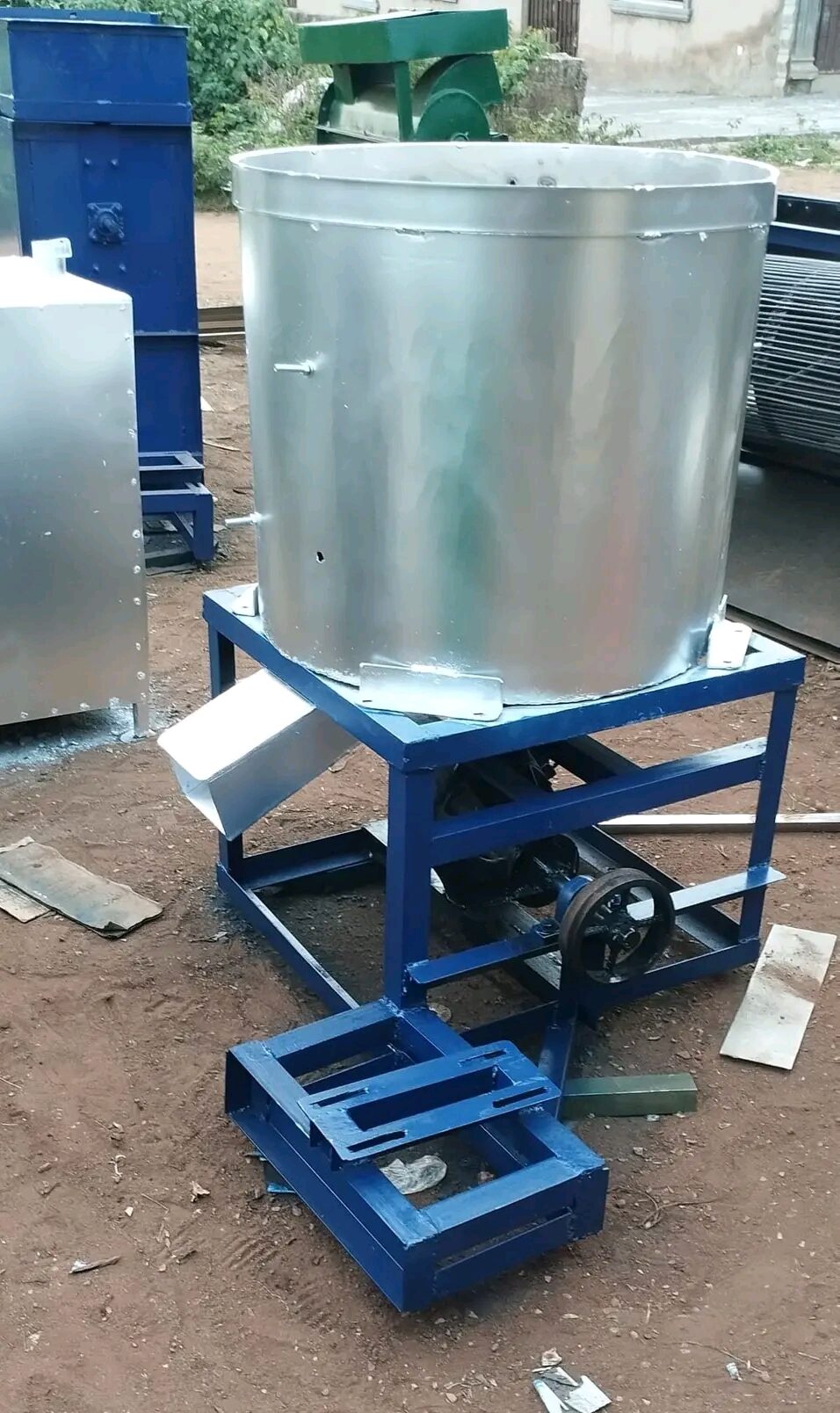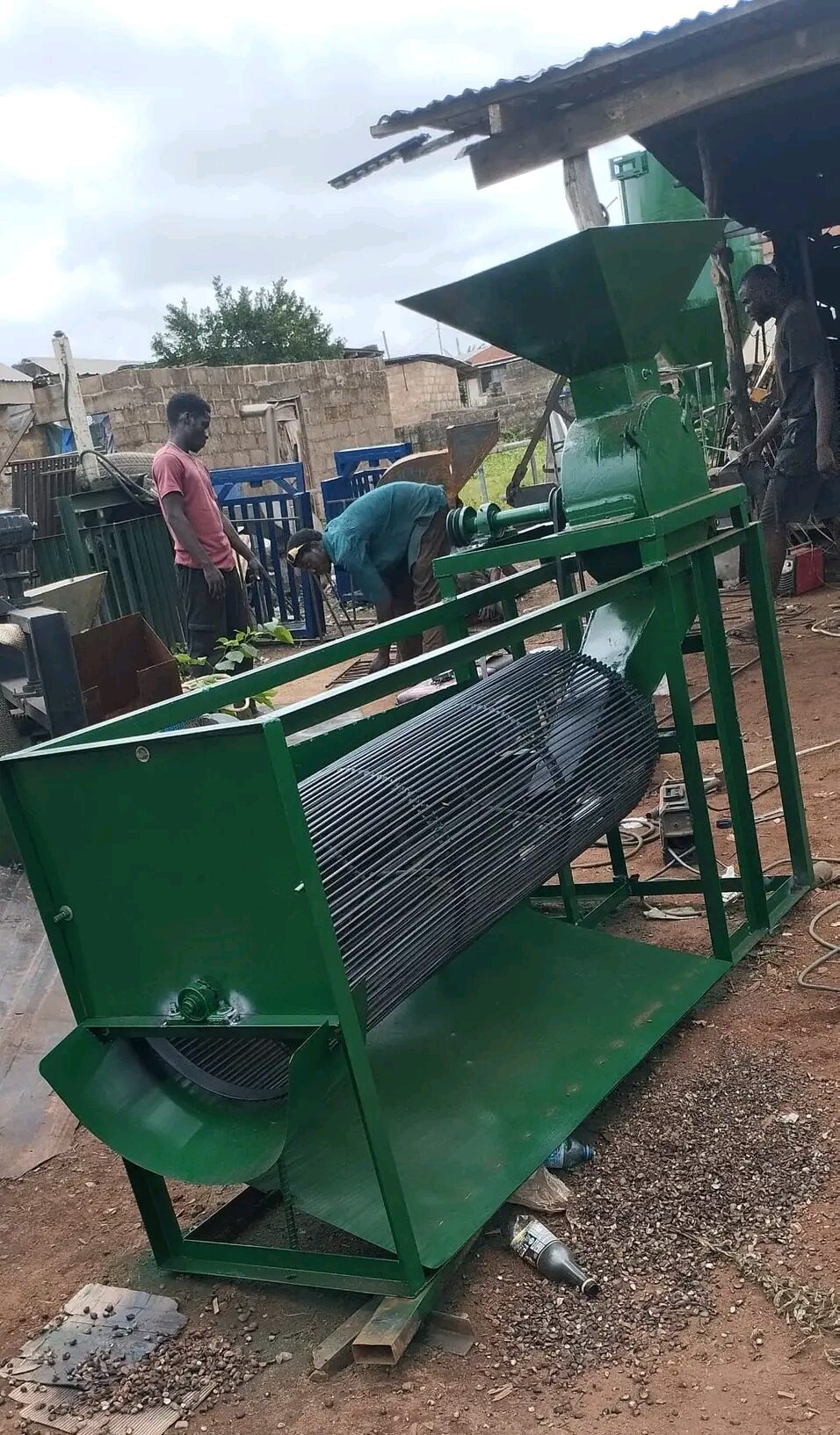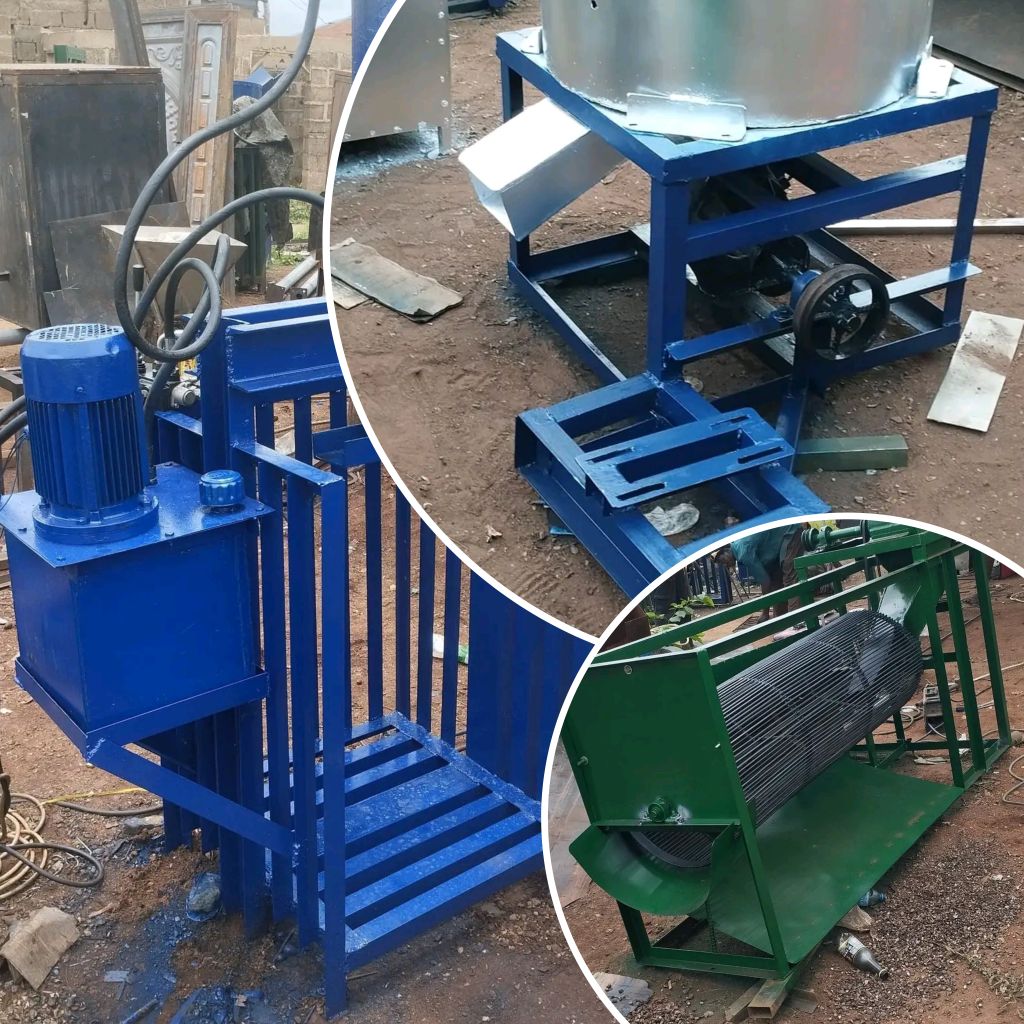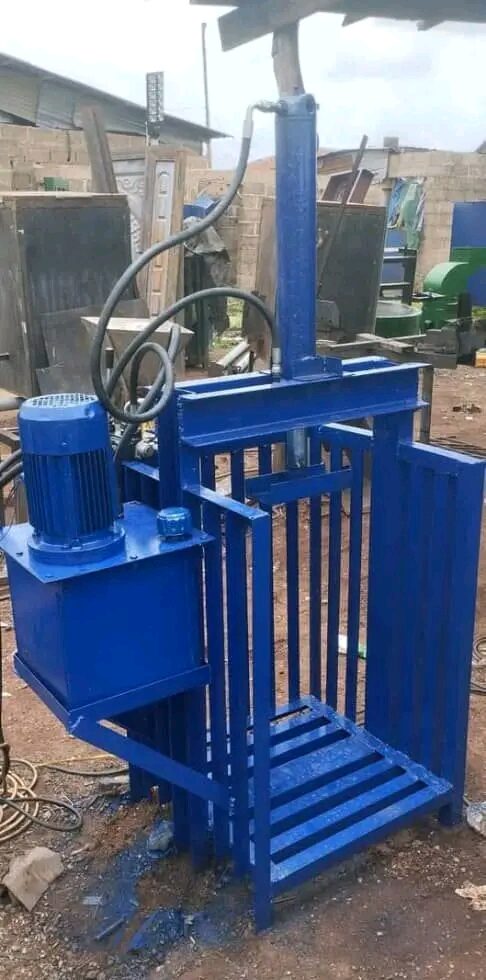Driving Growth from the Ground Up: How Nigerian Entrepreneurs Are Engineering a New Economy
By Arikawe Femi | The People’s Voice Nigeria News
At dawn in Ogun State, the hum of machinery echoes through a modest workshop where 29-year-old Tobi Adesina and his team assemble small agro-processing machines for local farmers. Sparks fly as metal meets purpose. Each machine sold may seem like a small transaction, but collectively, this rhythm of innovation represents something far greater, the quiet rise of a new generation driving Nigeria’s economy from the ground up.

Locally fabricated cassava peeling machine — a symbol of Nigeria’s growing innovation in agricultural value chains.

The palm kernel cracker and shell separator, locally built in Ogun State, helps farmers reduce processing costs and dependency on imports.
Across the country, from the bustling markets of Kano to the digital hubs of Lagos and the fertile farmlands of Benue, local entrepreneurs are proving that growth is not only possible in tough times — it is being engineered every day through ingenuity, persistence, and community collaboration.
A New Kind of Growth
Nigeria’s economy, often weighed down by inflation, foreign exchange volatility, and policy uncertainty, has shifted much of its hope to the grassroots. According to the National Bureau of Statistics (NBS), small and medium-scale enterprises (SMEs) contribute nearly 48% of national GDP and employ over 84% of the workforce.
Yet, behind these statistics lie stories of resilience, ordinary Nigerians turning scarcity into opportunity.
“We cannot wait for perfect conditions,” says Aisha Bello, a rice mill owner in Kano.
“When the cost of imported machines went up, I worked with local fabricators to build what we needed here. It was not easy, but it made us independent.”
Her story echoes thousands of others across Nigeria, people taking control of local value chains and proving that growth does not always come from billion-dollar investments, but from small factories, family farms, and innovative service providers who keep the country’s production wheels turning.
Engineering Innovation
From Aba’s leather workshops to Nnewi’s auto-parts factories, Nigeria’s industrial DNA has always been entrepreneurial. The recent wave of engineering-driven innovation is reigniting that spirit.
In Ogun State, young technicians like Tobi Adesina are building affordable agro-processing machines that help small farmers increase output and reduce post-harvest losses.
“A simple grain dryer or palm kernel separator can change a farmer’s income,” Tobi explains. “We fabricate these machines with locally available parts so maintenance is easy. That’s how you drive growth — by solving real problems.”
According to Dr. Damilola Adeniran, an economist at the University of Lagos, these small technical solutions collectively strengthen the economy’s backbone:
“What Nigeria’s micro-manufacturers are doing is creating import substitution from below. They may not be counted on the stock exchange, but their impact on productivity is measurable.”
Agro-Entrepreneurs and the New Food Economy
In Benue, Ifeanyi Udeh, a 33-year-old agripreneur, turned his cassava farm into a small starch-processing business supplying bakeries in Abuja.
“I started with nothing but determination,” he says, standing beside a locally fabricated press machine. “Instead of selling raw cassava, we now process it, add value, and employ others. Every ton we process is money staying within Nigeria.”
This localized value-addition is reshaping rural economies. Analysts say it’s part of the reason why Nigeria’s non-oil GDP — driven by agriculture, trade, and services — has outpaced oil GDP in recent quarters.
Technology and Adaptation
Meanwhile, in Lagos, where innovation meets survival, small digital startups are using technology to connect traditional businesses to wider markets. One such startup, TradeConnect Africa, founded by 26-year-old Samuel Opara, links local producers with distributors through a simple mobile platform.
“Many rural businesses struggle with market access,” Samuel notes. “Our app helps them find buyers, compare prices, and track deliveries. That transparency encourages growth — not just for one business, but for an entire network.”
His company, which began as a university project, now has over 5,000 users nationwide. It’s a digital example of what Nestlé calls “shared value” — business success that benefits both the company and society.
Challenges that Build Character
Still, every entrepreneur interviewed faces daunting challenges: unreliable power, inconsistent policies, high loan rates, and an unstable currency.
“You can’t talk about driving growth without talking about infrastructure,” says Mrs. Olayemi Ayodele, head of a local manufacturers’ association in Oyo. “But the good news is — Nigerians are not waiting for government. We are innovating around the problems.”
From using solar power to pooling funds through cooperatives, small firms are finding unconventional ways to stay afloat. Their creativity, many argue, is itself a form of economic reform.
Expert View: The Economics of Resilience
Economic experts agree that while macro indicators remain volatile, the real economy — what people produce, trade, and consume daily — tells a more hopeful story.
“These small enterprises are the lifeblood of Nigeria’s growth,” says Dr. Adeniran. “They keep the economy moving even when the big numbers look bleak. What we’re seeing is bottom-up growth — driven not by oil, but by human capital and ingenuity.”
He adds that for Nigeria to sustain this momentum, policies must make access to finance and electricity easier, while rewarding local production.
Conclusion: Growth with a Human Face
Back in Ogun, as the evening sun fades, Tobi switches off his welding torch and wipes the sweat from his brow. Tomorrow, another batch of machines will be delivered to farmers in Oyo and Ekiti. It may not make national headlines, but it’s exactly this kind of work — consistent, creative, community-driven — that keeps the country’s economy alive.
Nigeria’s future may well depend on people like him: builders, growers, and dreamers engineering a new economy with their own hands.
That, more than any statistic, is the true meaning of driving growth.



